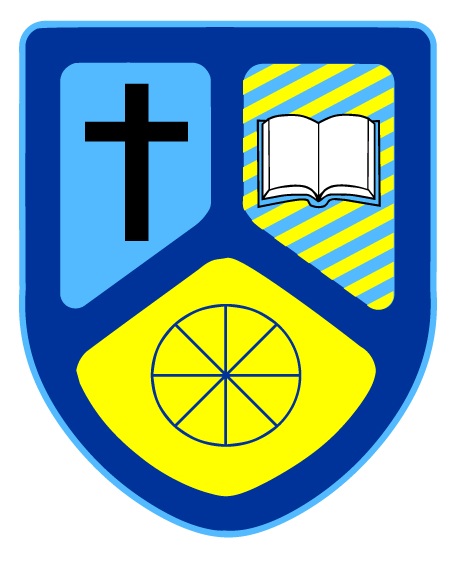Subject Leader- Mr L Wells
The intention of our English curriculum is to provide all pupils with a broad, balanced and knowledge rich curriculum, one in which each child acquires and can master the skills necessary to access the full range of our curriculum and make good academic progress throughout their time at the school. We aim to develop our pupils into the best readers, writers, communicators and thinkers they can be and do so by equipping them with a strong command of the English language. We have the very highest of expectations of our pupils and promote high standards throughout.
Our main aims are:
- Live: Ensure pupils are able to speak, read, write and spell competently in order to communicate ideas effectively to others so that they are ready for the next stage of their educational journey and for life beyond.
- Love: To broaden pupils’ access to a range of literature genres, time periods and authors, expanding their cultural capital, and foster a love of reading and inquisitive, critical and evaluative thinking.
- Learn: Develop independent, confident and successful readers and writers who are developed culturally, socially and emotionally, able to express themselves creatively in a variety of forms.
There are four key concepts which underpin the study of English at Edward Peake: Competence, Creativity, Culture and Critical Understanding. All that we do in English addresses these key concepts.
Competence:
- Pupils are clear, coherent and accurate in spoken and written communication
- Pupils read and understand a range of texts and respond appropriately
- Pupils demonstrate a secure understanding of the conventions of written language
- Pupils adapt in a range of familiar and unfamiliar contexts within and beyond the classroom
Creativity:
- Pupils make fresh connections between ideas, experiences, texts and words, drawing on a rich experience of language and literature
- Pupils use inventive approaches to making meaning, take risks, play with language and use it to create new effects
- Pupils use imagination to convey themes, ideas and arguments, solve problems, and create settings, moods and characters
- Pupils use creative approaches to answering questions, solving problems and developing ideas
Culture:
- Pupils gain a sense of the English heritage and engage with important texts in it
- Pupils explore how ideas, experiences and values are portrayed differently in texts from a range of cultures and traditions
- Pupils understand how English varies locally and globally, and how these variations relate to identity and cultural diversity
Critical Understanding:
- Pupils engage with ideas and texts, understand and respond to the main issues
- Pupils access the validity and significance of information and ideas from different sources
- Pupils explore others’ ideas and develop their own
- Pupils analyse and evaluate spoken and written language to appreciate how meaning is shaped.
At Edward Peake, the range of texts pupils are exposed to are vast; we provide pupils with the opportunities to explore a range of time periods, characters and issues and this diversity is fundamental in developing our pupils personally. Opportunities to improve pupils’ literacy skills are made possible by the extensive programmes we offer: Accelerated Reader, myON, Spelling Shed and Sounds-Write. Above all, we have a staff body dedicated and committed to giving our pupils the best possible experience of our subject.
Implementation:
Pupils are encouraged to broaden and deepen knowledge whilst showing a positive attitude to learning. The curriculum is built on providing pupils an opportunity to expand their cultural capital and gain exposure to a range of authors and genres. The Edward Peake lesson structure is used to ensure that pupils can develop their independence whilst receiving support and challenged to reach their full potential. We exploit every opportunity to develop pupils’ vocabulary and give them access to high quality texts which are shared and discussed with all pupils.
| Live: Ensure pupils are able to speak, read, write and spell fluently in order to communicate ideas effectively to others so that they are ready for the next stage of their educational journey and for life beyond. | Love: To broaden pupils’ access to literature in a range of genres, time periods and authors, expanding their cultural capital, and foster a love of reading and inquisitive, critical and evaluative thinking. | Learn: Develop independent, confident and successful readers and writers who are developed culturally, socially and emotionally, able to express themselves in a variety of forms. | |
| In the classroom |
Sequenced learning with prior learning revisited and built upon. Retrieval practice and interleaving. Weekly spelling homework provided in KS2 using Spelling Shed. Phonics provided as intervention through the Sounds-Write programme. Opportunities for speaking and listening activities linked to the units of learning, including role-play, hot-seating and presentations. |
A range of texts studied to reflect different periods in history and places in our world. Development of pupils’ cultural capital through examining the effect of culture on writing. Development of empathy through the presentation of characters. Pupils encouraged to read for pleasure and provided regular opportunities to do so and to engage in discussion on literature. Engagement in weekly reading focused lessons in our library. Use of Accelerated Reader and myON. Teachers reading aloud regularly to their class, through Power of Reading schemes (in Key Stage 2) and class readers. |
Daily English lessons. A positive reading and writing culture within the school so that both are celebrated and enjoyed. Quality first teaching. Challenging activities. Opportunities for a range of writing pieces to be produced throughout the key stages. Dictionaries and thesauruses readily available. All staff model reading, writing and handwriting. Interventions. |
| Out of the classroom |
Close links with feeder lower schools and upper schools. Visits from members of the wider community and world of work. |
Extra-curricular clubs. Author visits. Opportunities for trips. Accelerated Reader. myON.
Celebration of key events: National Poetry Day, World Book Day. |
Access to online resources. Knowledge organisers. Intervention strategies and support by teacher and subject leader. |
Impact:
Pupils achieve academically, are ready for their next steps in education and have high aspirations for their future.
| Live: Ensure pupils are able to speak, read, write and spell fluently in order to communicate ideas effectively to others so that they are ready for the next stage of their educational journey and for life beyond. | Love: To broaden pupils’ access to literature in a range of genres, time periods and authors, expanding their cultural capital, and foster a love of reading and inquisitive, critical and evaluative thinking. | Learn: Develop independent, confident and successful readers and writers who are developed culturally, socially and emotionally, able to express themselves in a variety of forms. |
|
Pupils are able to build on prior knowledge to develop further in subsequent topics. Pupils are given opportunities to reflect on their work and improve based on effective feedback. Teachers moderate pupils’ work in school against national standards to ensure accurate assessments are being made. Teachers regularly track progress and provide next steps to succeed. KS3 pupils are upper school ready. Pupils are prepared for the wider world. |
Pupils have high expectations for their future. Pupils extend their cultural capital by studying a range of texts from cultures and times aside from their own. Texts have been chosen to help the students ‘see themselves’ in society. They articulate ideas on these texts in a sophisticated manner. Pupils read for pleasure and speak and write enthusiastically about the texts they read both in and out of the classroom. Pupils are proud of their work. |
Our KS2 pupils attain broadly in line with the national average, given their starting points. Progress across the students time at school is at least good. Pupils develop their skills of discussion, analysis, interpretation and evaluation independently within English and transfer these skills to other subjects. Pupils can respond constructively to feedback and show understanding of how to progress. |


